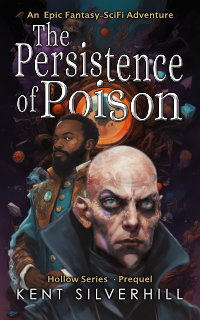Recently I was asked how I dream up names for my characters.
I suppose I don’t have a single technique. After all, my novels have a mixture of aliens and humans, contemporary and otherwise.
For the contemporary humans I use names that are reasonably common today. Writers often base their characters on people they know and I’m no exception. I try to pick names for my human characters that I deem is in keeping with their personality and bears no resemblance to the name of the real person on whom they are based. There are several articles on the internet about choosing names for human characters so I won’t go on about it here except to add I always Google the names I choose (i.e. first name and last name together) to check if another writer has used the same name.
When it comes to aliens and, sometimes, the native human inhabitants of Hollow I devise their names from scratch.
I start with a ‘seed word’. This is a word usually chosen at random. I look around and see what words are on labels, signs, posters or whatever nearby. If there is a multi-syllable word so much the better but, if not, I’ll join two or three shorter words together as a starting point. Or I might just select a word at random from memory. Once I have my seed word, I remove a letter here and there, maybe add one or two letters, replace and rearrange some until I come up with a word that feels like an alien name.
For example, nearby where I’m sitting I see ‘Chambers Twentieth Century Dictionary’. I decide to try ‘Twentieth’ and start by removing letters:
- Wentieth
- Wenteth
- Twent
- Tieth
- Entit
- Wentit
Hmmmm… I quite like Wenteth. It suggests a European Middle Ages type of character.
I also like Twent because it sounds close to being a rude word (to me anyway!). A good choice for an unsavoury character perhaps.
Let’s assume none of those appeal. Next is to try adding and rearranging letters, maybe even removing some more. For this example I’ll only use Wenteth to mess around with:
- Thewent
- Hewent
- Hewen
Let’s pop a G on the front of Hewen:
- Ghewen
That’s interesting. Ghewen could be the name for a character with a nice nature. But what if I’m trying to make up a name for a not so nice character? How about adding sibilance?
- Geshen
That could do the trick. I’m still not happy though, so I’m going to play with Geshen some more:
- Geshent
- Hentesg
- Henstheg
- Veshen
- Vessen
- Vesset
- Vessett
- Vassett
And so on. You can stop when you’ve found a name you like or you could keep going and review the list later.
As always, Google your chosen name to make sure it isn’t used by another writer. Another reason to search the internet for the name you have selected is to check if it isn’t simply a word in another language (in the above examples ‘vessen’ turns out to be an existing word in Catalan). Even worse, you might invent a name that is a perfect fit for a warrior only to Google it and find it’s the name of an infamous coward.
You don’t have to do these steps in any particular sequence. Start by adding letters instead of removing them if you want. You don’t have to start with a multi-syllable word either. You could start with ‘dog’ and add letters making it into ‘Dotig’, ‘Dorag’ etc. Do whatever you like. There are no rules.
Sometimes you might deliberately pick a seed word that describes an attribute of the character. It might be a character who’s often angry and rants a lot so you pick ‘rant’ as the seed word. After playing around with ‘rant’ you could end up with a name like ‘Ranthar’, which, if you’ve read my books, you’ll recognise 🙂
I’m sure I’m not the first person to come up with this technique or something similar. For example, it’s not uncommon for businesses to be called after peoples’ names joined together in imaginative ways. All I’ve tried to do is describe how I create names.
Finally, a word about punctuation. There is a tendency for some fantasy and science fiction writers to litter their characters’ names with apostrophes to make them even more unusual. Avoid. It’s a clichéd technique and detracts from the readability of the story.

Leave a Reply